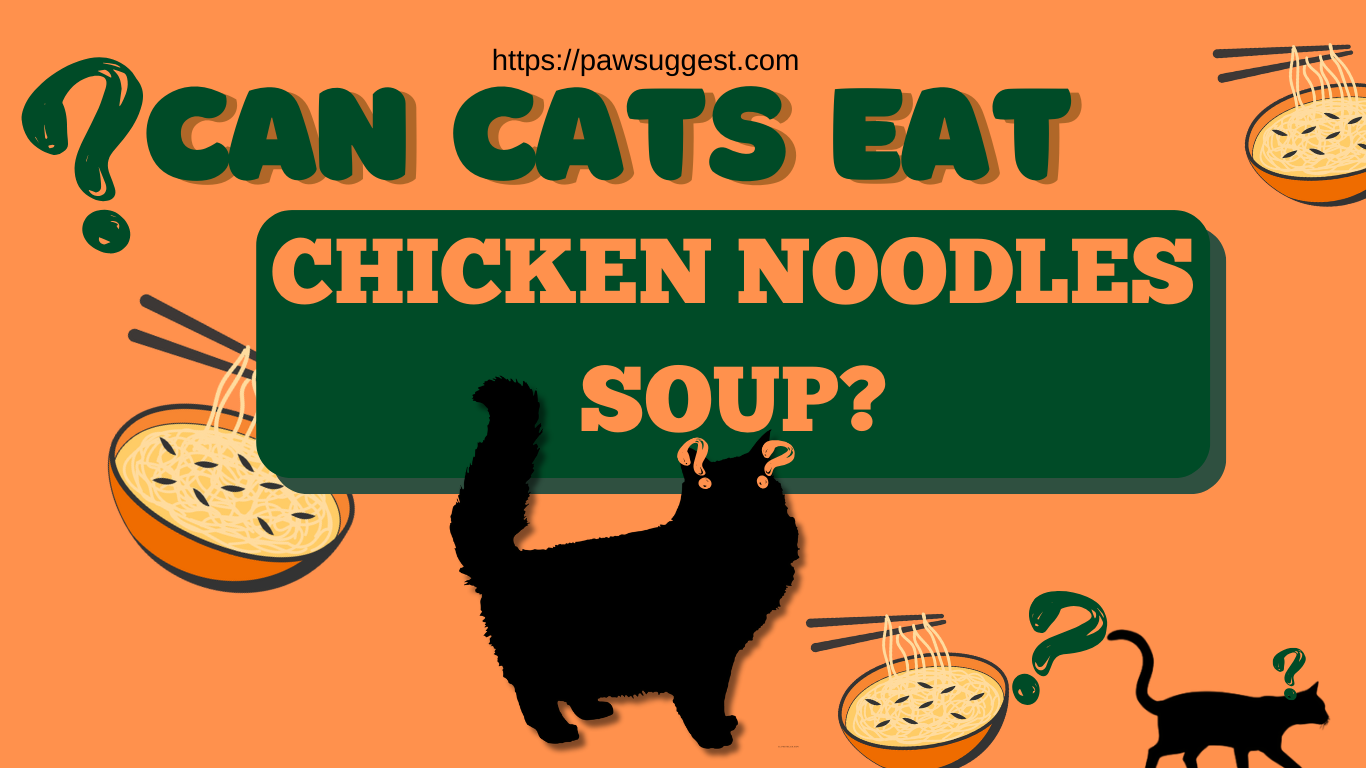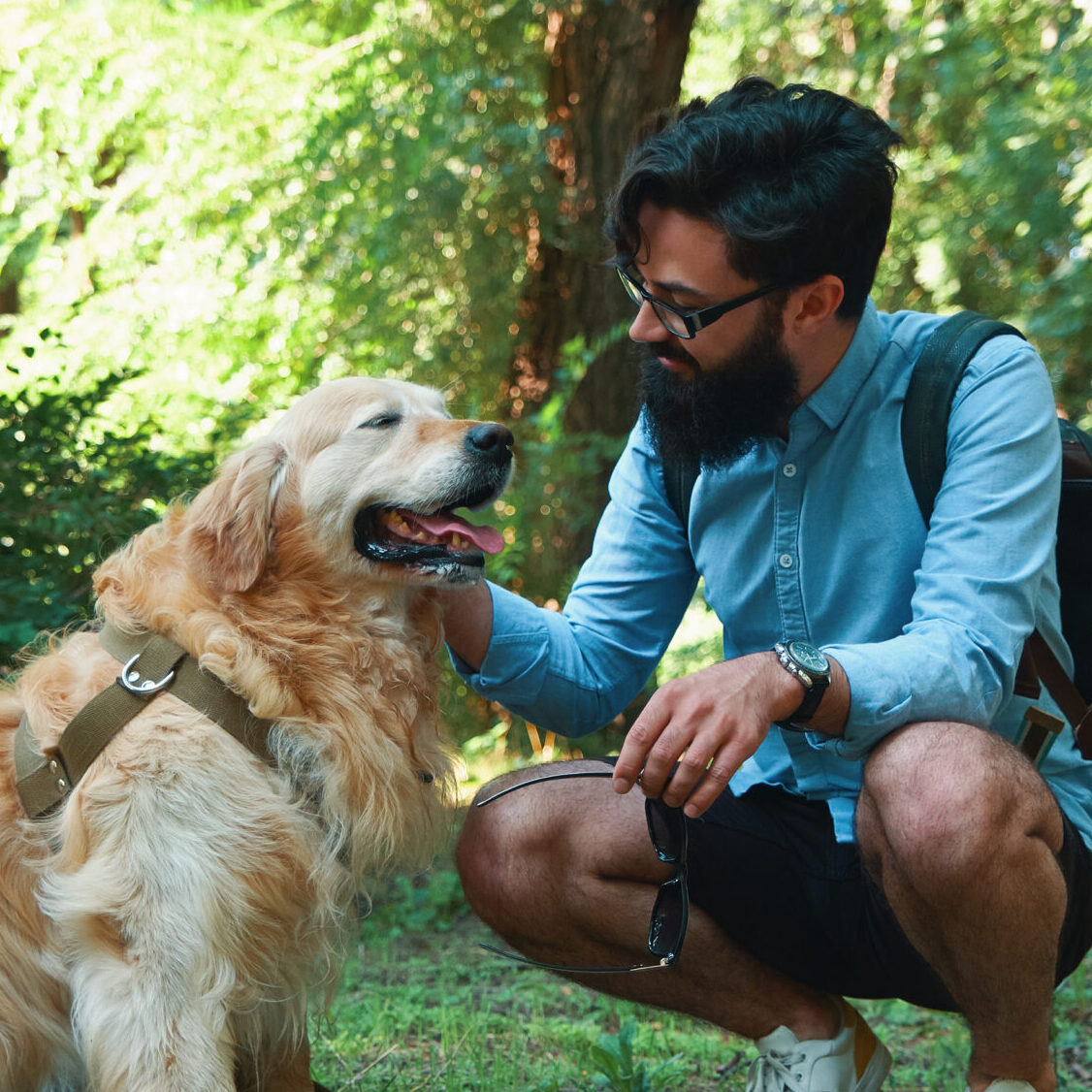A hot bowl of chicken noodle soup is a great way to soothe yourself in cold weather. But is it the same for cats. Can you feed chicken noodle soup to your cat?
Being a great fanatic of chicken noodle soup, you must be wondering whether you should share it with your closest friend.
It’s a straight NO. No expert will ever allow you to give chicken noodle soup to your cat. But it’s also not a toxic food item.
To get answers to your questions like why chicken noodle soup is a “No” for cats, read this short but comprehensive article carefully:

Can Cats Eat Chicken Noodle Soup?
What does Chicken Noodle Soup Contain? (Is it REALLY Bad for Your Cat?)
Asking any senior vet about whether your cat can eat chicken noodle soup will start a long lecture. In short, veterinary doctors hate chicken noodle soup.
They’ll always suggest you to not fall for it even if your carnivore friend begs you for hours. They advise it like this because usually, cats love these kinds of things.
But why do vet hate it so much? Let’s find this out through this table that shows what chicken noodle soup contains:
| Ingredients | Nutrients |
| Noodles | Carbs Fiber Protein |
| Garlic | Disulfides and Thiosulphates |
| Onion | Disulfides and Thiosulphates |
| Chicken | Protein |
| Oil | |
| Salt | Sodium |
| Additional Spices |
From the table, it can be seen that chicken noodle soup isn’t really the right thing to add in the diet of your friend even though if we just out attention on two main ingredients.
Yes, it’s true that protein is good for cats and should be included in your cat’s diet. But noodles aren’t right for them because cats don’t really need carbs and fiber.
So, if you feed them noodles, they might cause a disturbance in their body and hence, your pet might have to face obesity.

Risks of Feeding Chicken Noodle Soup to Your Cat
At this point, we have just talked about two main ingredients and you can already see that chicken noodle soup shouldn’t be fed to your cat. Right?
But the real deal is still hidden in other ingredients like onion. So, let’s uncover their truth:
1. Onion
Onion belongs to the Allium Genus family of plants and contains chemicals like Disulfides and Thiosulphates. According to a reputable organization of the US (American Society for the Prevention of Cruelty to Animals), anything that belongs to Allium family is extremely toxic to cats and dogs.
Even cats can get into trouble by just consuming onion equal to 0.5% percent of its body weight. The main issue onion can cause is known as ‘onion poisoning’ which further leads to several health issues that are:
- Dehydration
- Diarrhea
- Belly pain
- Vomiting
- Depression
- Appetite loss
In worst case, your pet can also suffer from hemolytic anemia, Heinz body anemia, and methemoglobinemia. All three of them are simply knowns as damage of red blood cells.
2. Garlic
Garlic also belongs to Allium Genus family which means that the side effects of eating garlic will be quite similar to that of onion. Even some experts suggest that eating garlic is 5 to 7 times more dangerous than eating onion for cats.
Health risks involved in the case of garlic are quite similar to the onion ones, but with garlic, their intensity is way here. It means that the risk of damage of red blood cells is higher. Moreover, due to garlic, low blood pressure can also happen to felines just like humans.
3. Salt
Consumption of salt is another threat for cats because of presence of sodium. It’s not as severe as onion and garlic but you also have to restrict it.
Usually, chicken noodle soup has extra amount of salt and the sodium in salt causes dehydration. The level of dehydration due to sodium is higher than you think because cats hates drinking water.
4. Other Spices
Unlike other ingredients, spices like pepper, chili, and cumin aren’t that difficult to digest and accept for feline’s body. We would still say that there might be a risk of diarrhea and vomiting as we don’t know how strong the kitten’s stomach is. If it’s weaker than an ordinary cat, spicy food is also a ‘No’ for it.
Your Cat ate Chicken Noodle Soup. What Should You Do Now?
First thing you have to do is have a look at the ingredients. If it has too much amount of salt (more than 0.3% of whole weight), just make sure to keep your friend hydrated.
In case of spicy or oily noodles, the state of your cat must not be as bad. Even if any ingredient cause diarrhea or vomiting, it’s still not that of a big issue.
But if there were onion and garlic in that soup, you better assess the state of your feline’s body. As soon as you see any changes in its routine or diet, take it to vet because there is a risk of severe health issues.
The Only Right Way to Feed Chicken Noodle Soup to Your Cat
Just in case, you still want to feed chicken noodle soup to your cat for any particular reason, you have to consider these things before:
- There has to be no onion or garlic in the ingredient list of chicken noodle soup. You already know what they both can do to your pale.
- Salt is another thing that shouldn’t be there. But there has to be salt in every chicken noodle soup for flavoring and preservation, so ensure it isn’t too much. For this issue, a trick to remember is, “The more the broth, the more there will be salt.”
- Extra spicy noodle soup should also be avoided.
- You also have to make sure there is no such chemical (maybe in the form of preservative) that’s allergy to cats or just your kitty.
Note: If any of these conditions aren’t fulfilled, don’t feed chicken noodle soup to your best friend.
Do these considerations also apply to things like canned chicken? Click here to learn!
FAQs
Are spices the real issue in chicken noodle soup for cats?
Not really!
If you are counting onion and garlic in spices then yes. Otherwise, an ordinary cat can ingest herbs and spices like pepper if the cat has a relatively stronger stomach than weaker cat.
Can your sick cat eat chicken noodle soup?
Yes and No!
You have already seen that some ingredients of chicken noodle soup like onion or onion powder can be really bad for feline’s health. However, chicken noodle soup is quite rich in protein, nutrients, and obviously calories. So, if your cat is sick and losing wait due to that, chicken noodle soup can be effective only if given the right way. (Read previous heading if you haven’t already)
Wrapping Things Up
In the end, it wouldn’t be wrong to say that feeding chicken noodle soup to your kitty is not worth the risk. Health threats involved in doing that are way more than joy of mere five minutes. But if you still want to make your feline happy, we have talked about every possibility.
Still have any queries? Ping us up anytime!

